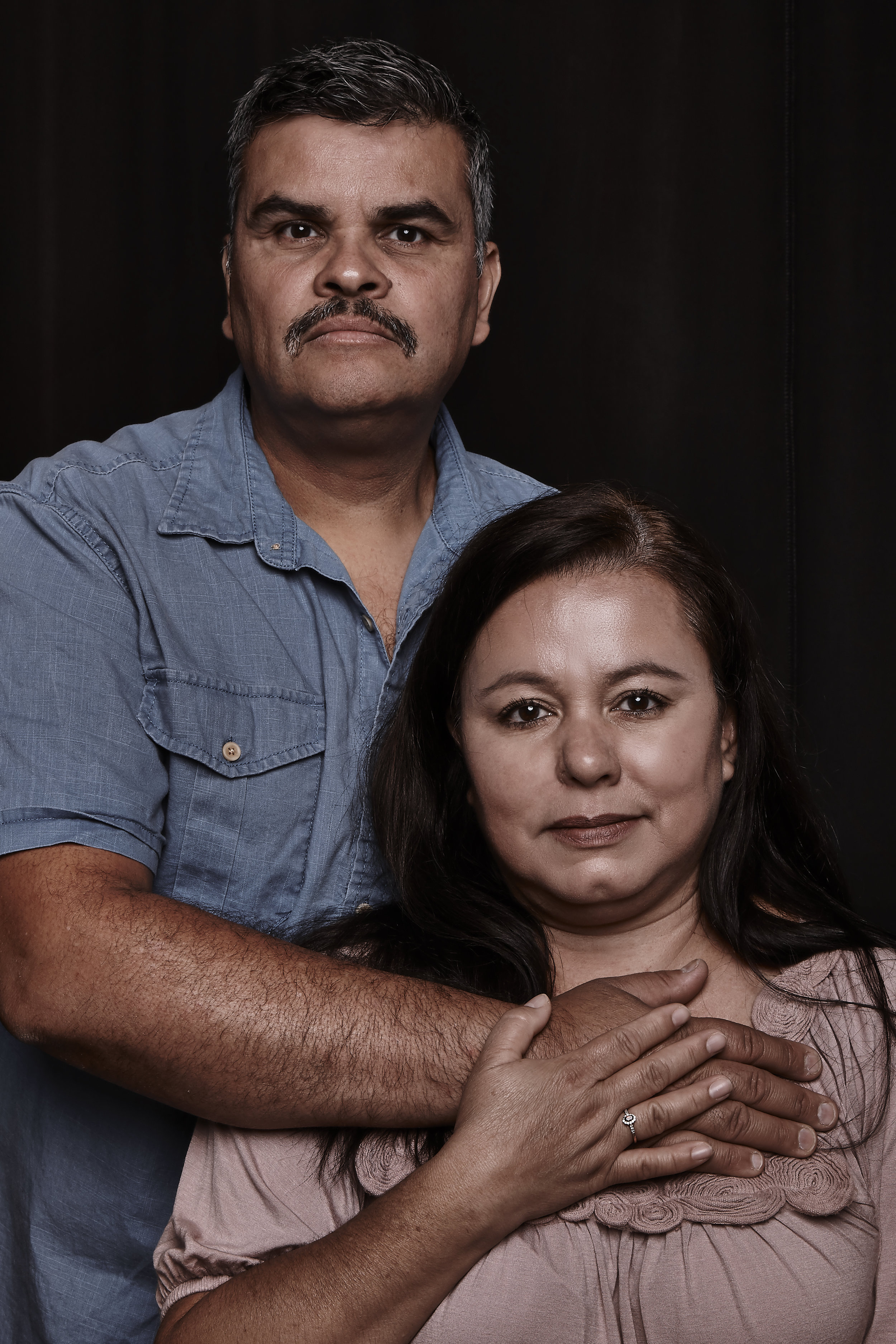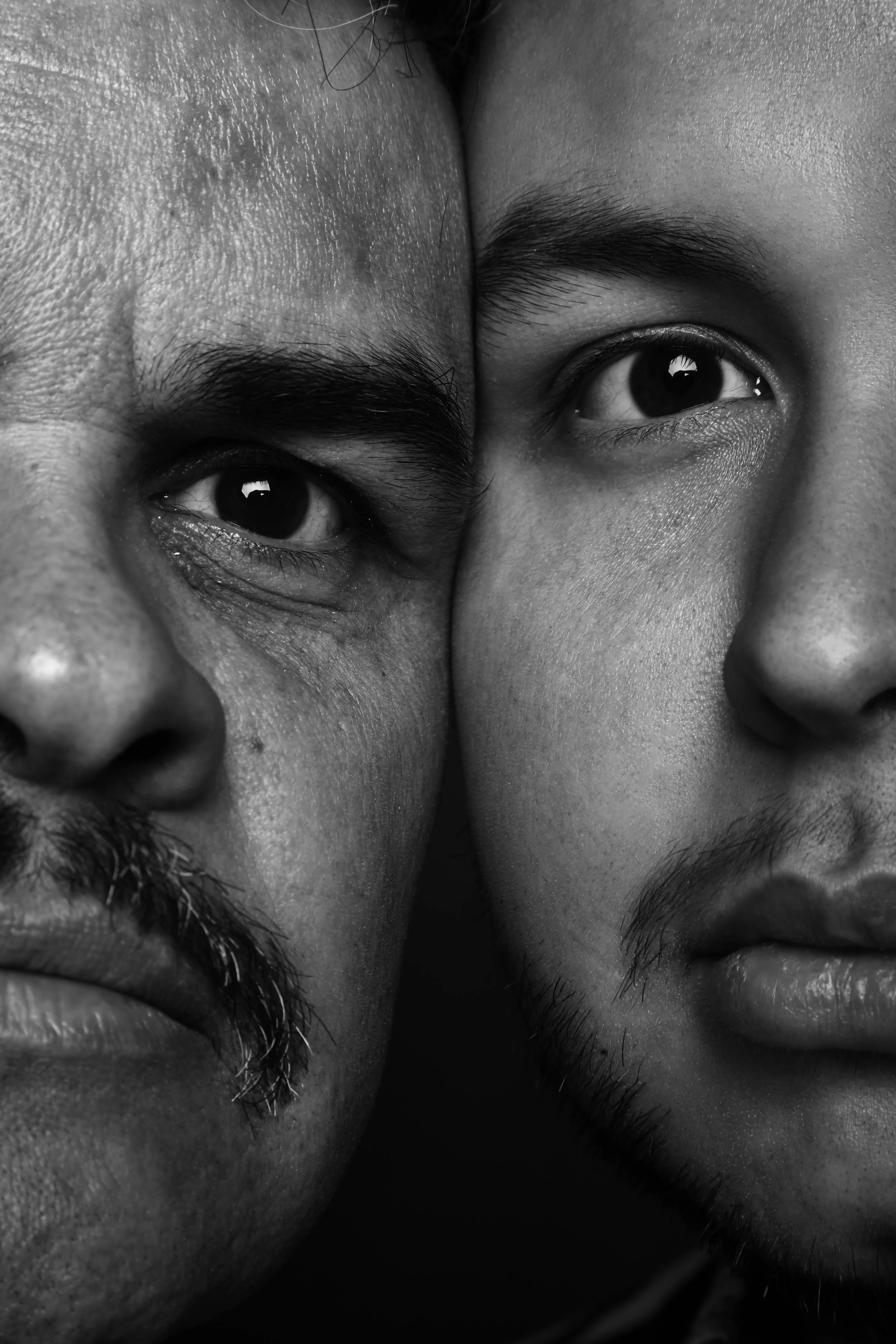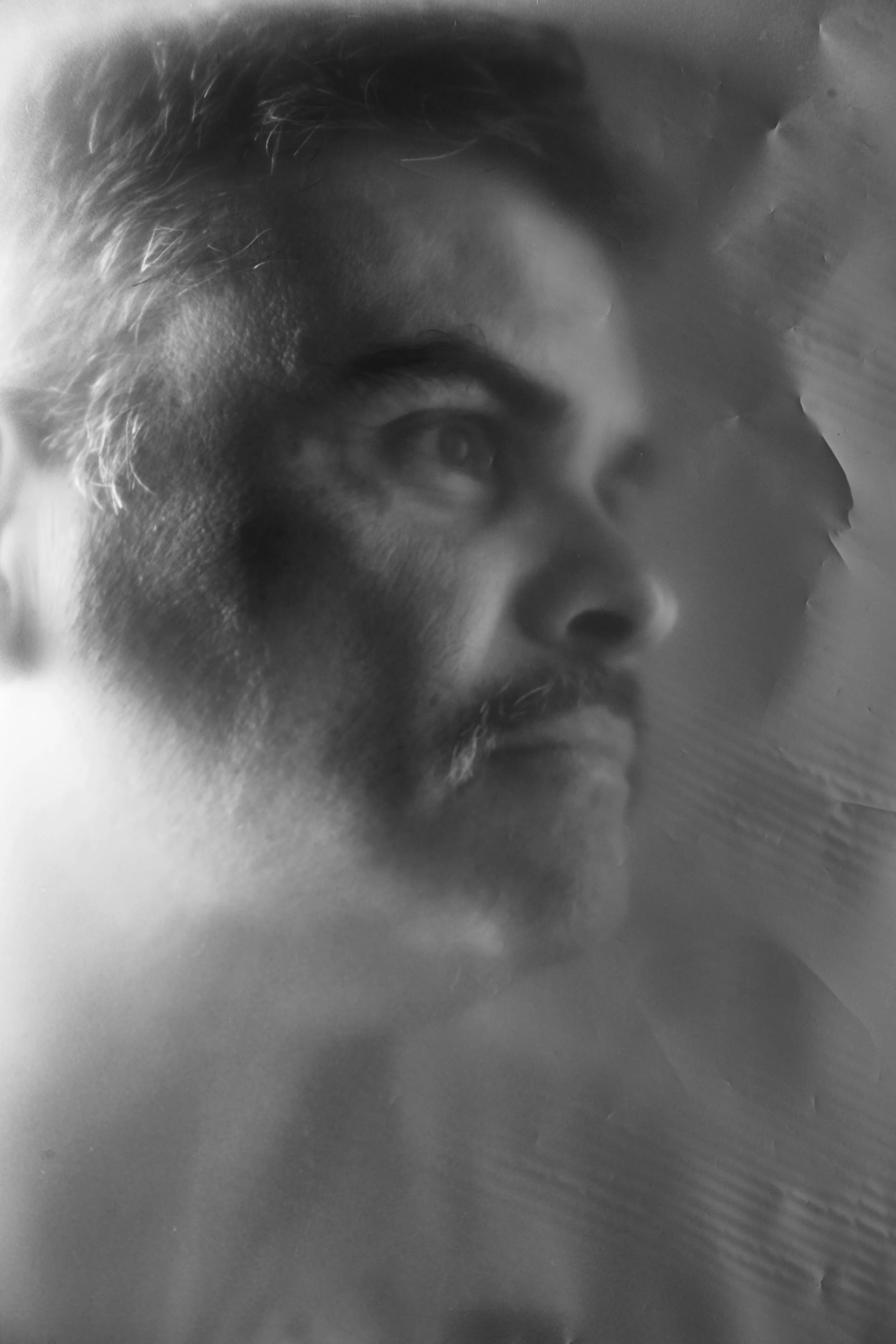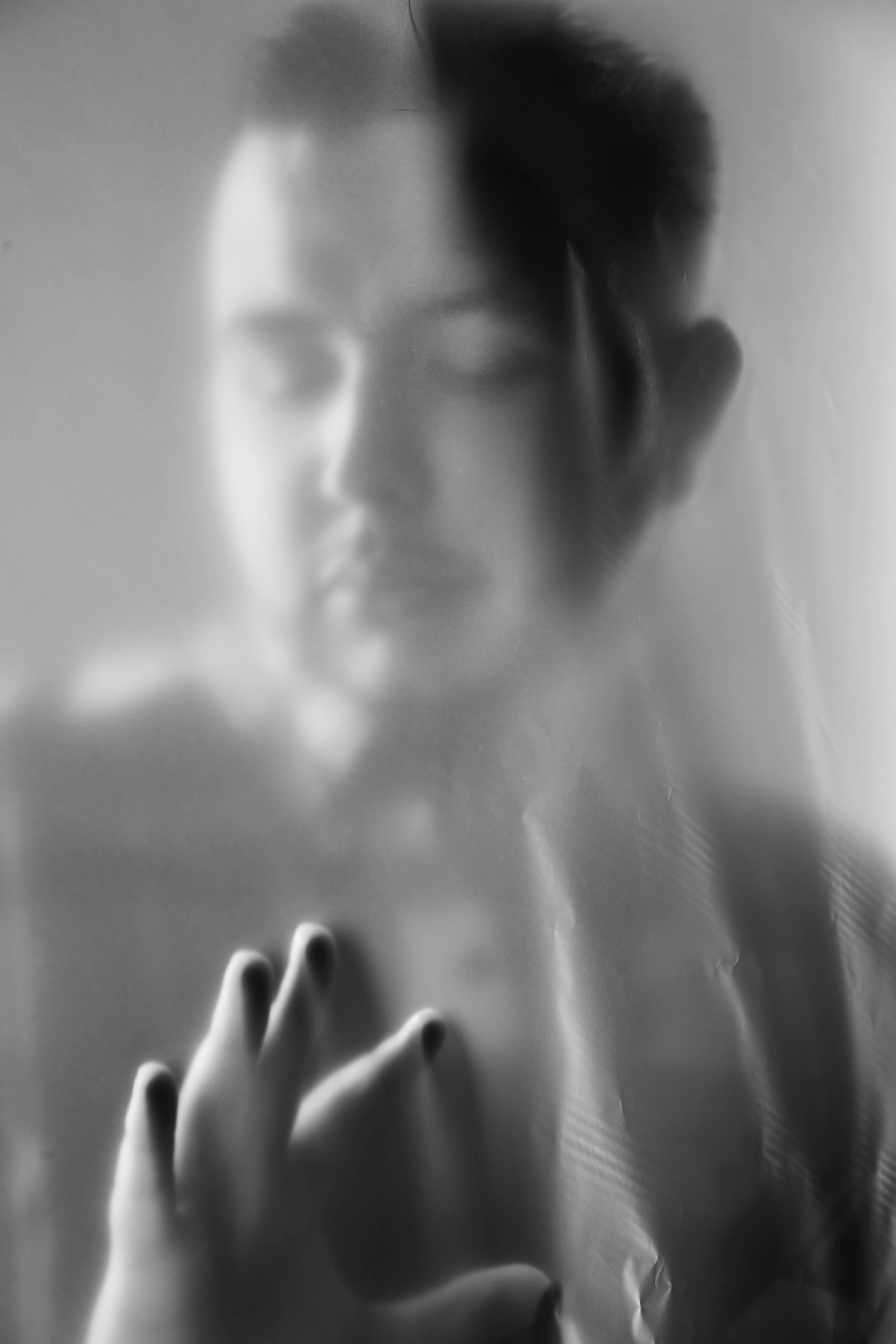Enrique
[Mexico]
Enrique and his parents discuss their treacherous journeys to the U.S., the notions of freedom and justice, as well as Enrique's future as a DACA recipient.
First off can you tell me where you're from and when you moved here?
Enrique: We're from Mexico, specifically the state Jalisco. It's the second largest city is Guadalajara, and that's where I grew up until I was twelve years old. That's when I came here. I am 24. So I've been here for half of my life.
Did your family move here together?
E: No. My parents moved here six months before I came.
Can you tell me the reasons for moving to the United States?
Hector: The issue I had in Mexico was that the country discriminates against age and when they see that you are 33 they see you as old. I was a Pepsi salesman, and when I lost that job, it was getting really hard to find another job, so I was unemployed.
What was your journey like moving here to the United States?
H: We had to walk across the desert for three or four hours.
We left Guadalajara to go to the border. The name of the city was Naco in Sonora which is right at the border. We waited one week because we were not able to cross yet. We hired a Coyote to cross the city at night. There were ten people including us. We spent 24 hours on the retreat with no water and no food. It was very hot. We were just waiting for the people who were going to pick us up. The people picked us up at 8 p.m. the next day. I traveled in the trunk of a car with another guy for five hours also with no water. I was suffocating inside. There were two other people in the back seat on the floor and Alma was in the front passenger seat. They took us to Pheonix, Arizona.
We were taken to a house where there were no beds or food. Nothing. It was pretty much an empty house. There was a man with a gun guarding the door. We were there for another 24 hours. We couldn't go outside. It was my cousin who already lived in the U.S. who helped us once we got to the city. We were told that we couldn't leave until they received the rest of the money that we owed.
How much money did it cost to be transported across the border?
H: It was $1,500 per person, so $3,000 for both. Now it's more expensive, but back then that's how much it was. It was my cousin who paid for our release from the house, but the people working there took us to Memphis, Tennessee where my cousin lives. That was all part of the package. The entire trip took about two weeks.
“We hid under bridges with dirty water. For those 24 hours that we waited, I couldn’t sleep because of the possible animals around and because of the border patrol. You could hear their helicopters.”
This might sound like a weird question but, were you afraid through that whole journey? It's really hard to imagine what that experience was like.
H: We were fearful especially for Alma. The two people helping us cross, the Coyotes, looked like they were intoxicated or on drugs and they had guns.
Alma: When you are crossing the border, they do not wait on you. You will have to stay behind or keep up the pace with the Coyotes. I fell and hurt my knee. We crossed a very tall wall of the border, and that is when we got separated for a little bit. As soon as we jumped the wall, we were told that we had to sprint to this place where we would not be visible to U.S. patrol officers. We all scattered around the bushes to hide. When we started walking again, we could hear the real coyotes and snakes making sounds. You must be watching out for yourself. We could see border patrol coming from far away, and so when they drove by, we had to hide behind a cactus, so we were being hurt by them.
We hid under bridges with dirty water. For those 24 hours that we waited, I couldn't sleep because of the possible animals around and because of the border patrol. You could hear their helicopters.
H: I believe that we were close to the town of Bisbee, Arizona. We could hear the factories and the workers on their lunch breaks, but while we had to remain hidden for 24 hours, we had nothing to drink or eat.
A: The Coyote's cell phone was given to me because they said the women are the ones that get searched the least if we were to be stopped by the police or border patrol. We mostly drove through the desert and dirt roads. Hector kept passing out in the trunk because there was no water. He kept yelling from the trunk for them to stop because he kept passing out.
What has life been like living here?
H: It's been hard being here mostly because of the language and with the inability to work here legally. I'm currently working for myself doing different types of construction from flooring to walls and landscaping as well.
E: My mom doesn't work right now, but she used to work for many years at McDonald's. They haven't been working for actual companies because they would need fake documents and they don't want to do that. That's why my dad works for himself, and my mom doesn't work anymore.
Would you say that through it all, you both are happy with life?
H: We are happy with life because of our kid's achievements. The reason we came here was to better our kids' lives. I'm fine with any discrimination that may happen to me because my children are here. They are educated, going to school, and hardworking. What happens to us doesn't matter as long as they are doing well. That makes us happy.
A: Yes. I believe it was worth the sacrifice although now that DACA was taken away, I ask them for forgiveness for having to make them go through all of this. The good side is that, in my opinion, we still have better opportunities than our family back in Mexico. There is much more poverty there. The wages are less, and the opportunities are less. We are happy because our three children have taken advantage of all of the opportunities that are here.
Enrique, are you the oldest?
E: I'm the middle child. I have a sister who is four years older. She's 28. I am 24 years old, and my youngest sister just turned 23.
What are your outlooks on life for the two of you and your children?
H: I am still positive. I believe that we will continue living a better life than we had in Mexico with better opportunities and more education.
A: We've always had hard labor jobs. We are now happy that our children aren't getting those types of jobs. They're getting better jobs that they actually enjoy instead of what we do now.
What are your hopes for your children, but more specifically Enrique?
H: I hope for him to finish his school. I want him to achieve his goals. That would make me the happiest.
A: One day, I hope to see him travel freely if he wants and that he won't feel imprisoned here in the U.S. despite all of the achievements that he's done here.
In light of your journey to the United States and all that you've been through, what does freedom mean to you? I feel that freedom to a White person would mean something different than what it means to you as an immigrant or to me as an African American.
A: To feel free is to be in this country without being told that I am an illegal. It means being able to work in a job of my choice because I would have a work permit. It means being able to go to the doctor and having all of the documents straight so that I can leave the country and come back as I please. Although we are here, we don't forget who we are, where we came from, and our people back home. Now we are not free, and we cannot go anywhere. We just work hidden in the shadows.
Freedom is also learning the language well. We've been trying. We go to classes, and we're learning the alphabet. Not being able to speak the language has cut our opportunities.
H: For me, to be free would mean being able to have a driver's license and a work permit so that I can work at a steady job. I would like to make more money and not to become rich, but to be able to pay all of our bills. We are not able to help them with our children's college tuition, but we can't although we would have liked to.
A: Another freedom would be to be able to have credit to buy things. Right now we have a mortgage, but our interest rate is super high. Every time we want to buy anything through financing, we are always given the highest interest. To buy a home, a car, anything. We have a small house right now, but we pay as if we have a much bigger house than we actually have.
“We are happy with life because of our kid’s achievements. The reason we came here was to better our kids’ lives. I’m fine with any discrimination that may happen to me because my children are here. They are educated, going to school, and hardworking. What happens to us doesn’t matter as long as they are doing well. That makes us happy.”
So that raises another question. People have a lot of misconceptions of what the lives of undocumented immigrants is actually like. How are they able to have a mortgage?
E: There are banks who will loan to people in similar situations. My guess is that they were given a high-interest rate because they could be deported or something like that. Their interest rate is a little over 8%. You can buy a car, but they will charge like 23%. Thankfully, since we have DACA, they can buy cars with our credit for lower interest rates. Before we were adults, they had to pay all of that.
A: Even for the children, without DACA, they would have been paying the tuition rates that foreigners would normally pay.
You mentioned freedom means having access to doctors. If something were to happen to you, where would you go?
A: If it's an emergency we will go to the emergency room. In Pelham, there is a clinic that we go to, and they give me basic checkups, and we can usually get that for free. We just pay for the medicines. There are many things that they don't do though, and we don't receive any government healthcare.
H: If you look, you can see that her nose has been broken. It's been broken pretty much since we first came here. She fell off of a ladder while working and she couldn't get it fixed. The person that she was working for was an American guy. He pretty much just dropped her off at that the emergency room and left her there. He never paid for anything, and we were not aware of any of the laws so of course, we didn't do anything against him.
I've asked you what you believe freedom is, but I also want to ask you both what is your idea of justice?
A: Justice for me is a strange thing here because the government knows that we are here working because we are able to get a tax ID number for business purposes. The government gives them to us, but then they also don't like it if we use a fake social security number. The same government that says that we cannot work gives us a number so that we can file taxes.
H: Yes, the government doesn't want to give us any path to citizenship, but they do want to take our money. We know people who have been here way longer than we have and none of us are able to become citizens even though we have no criminal record and are productive.
Enrique, what were you and your siblings' journey moving to the United States?
E: We came here undocumented like our parents. The only difference was that we came here six months later. They came in June of 2005. My sisters and I came here right after Christmas. It was one of the hardest things that I've ever done. I left everyone and everything that I knew behind as a child. It was the last Christmas, and we said goodbye to everybody. My aunt took us to the border where we would meet the Coyote which are the people that my parents hired for us to cross.
The way that we crossed was very different. For one, these people were super organized down to every single detail. It was much more expensive, and it was just me and my siblings. They took us to this house so that we could be fed and rest. It was nice. The people were nice to us. They crossed people in cars by using real Visas from people that they knew personally. They made us appear as if we were the people in the photo on the Visa. I had to memorize a kid's life in case I got stopped at the border and asked me questions. I had to make it look real. When I crossed, they paid this lady, and I used her son's Visa and pretended to be him.
We crossed at night. When we got ready to cross the border, the patrol officer asked us where we were going and we told them that we were going to the Walmart in Texas. That's how we got in.
What are you studying and what would you like to do with your degree?
E: I'm studying finance. I would like to try doing financial analysis working for a bank. There are many things that I could do. I could do the bank investment side of it as well working in the market and how it works. I would love to travel in my job as well.
I feel like there are a lot of misconceptions about what DACA is. Have you run into many people with those assumptions?
E: Oh yes. Definitely. The first and biggest misconception is that tax-payers are paying for it. Not at all. We, as DACA recipients do not get any government benefits. No FAFSA. No Food Stamps or Obamacare. Nothing like that. We pay for that. Even for the fees to process the DACA renewal, we have to pay $500 every two years. If it cost more money, I would still choose to pay it because the benefits that come with it changed my life for the better when it came five years ago under President Obama. The other misconception is that we have a path to citizenship. There is no path. Nothing. The only chance I have is to marry an American citizen or to have some very special skill that the U.S. government needs. Without DACA, we go back to the way it was before which means not being able to go to work, not having a license, and not even being able to get simple loans.
“Sacrifice means doing something that doesn’t necessarily benefit you, but it’s for the better good of somebody. Family is always the people that I can count on. They will be there for me during good and bad times. They show me unconditional love, and I show them unconditional love as well.”
Since the election, what has life been like? Have you noticed any increased discrimination as an immigrant?
E: Personally, I haven't noticed anything. People here have been really nice to me. I think this is also because I speak the language.
Would you say that you and your parents have experienced discrimination because you are immigrants and they don't speak fluent English?
H: There were specifically two times. A few years ago when the HB56 came about, we were driving down the interstate, and some people followed us in their car and were yelling racial slurs at us. The second time, a few months ago, a barber shop did not want to give me service because they believed that I never paid a previous service. I even showed them proof of everything and bank account information, but they threatened to call the police. They wouldn't let me explain.
A: In the workplace, there is always a difference. We are always the ones working more than the rest. We are given the harder jobs, and there is more asked of us.
What were your feelings after the election?
E: I was very afraid of it and that this would happen. I'm getting a college degree, and I'm educated. I'm willing to contribute to society, and now that is being taken away. I won't be able to work. I'll have a degree that will literally be worthless if I'm not able to work.
I don't think Trump understands that Mexicans aren't the only ones crossing that border. They come all the way up from South America making that trip. It's not just Mexicans.
A: We feel attacked because the color of a person's skin does not make up the person. We're just like any other culture. There are good people and bad people. We live here with more fear going out into the streets now.
H: I feel bad about the wall. We are glad we're here, but the reason people come here is for a better life.
A: The wall to us just means hate. There have been other walls in history, and they have been for hate.
What do the words sacrifice and family mean to you?
E: Sacrifice means doing something that doesn't necessarily benefit you, but it's for the better good of somebody. Family is always the people that I can count on. They will be there for me during good and bad times. They show me unconditional love, and I show them unconditional love as well. That's what family means to me.
H: Sacrifice for me, means having and keeping the family together. It's not an easy thing to do in this country because a lot of people who come here have their whole family split. Many families have drug issues. We are always willing to give them advice and to help our children.
With all that's been going on politically and specifically with DACA, what gives you hope?
E: I know the American, and I know that the government does not represent the American people. I mean I've been here so long that I consider myself an American just like everybody else. I'm optimistic because I know that the American people are compassionate and that they do and believe the right thing. I'm positive and hopeful that later on in the future, there will be legislation that will help us.
Looking forward, in ten years, where do you see yourself?
E: Hopefully, I see myself here and not being deported. I hope to be doing something that I like and contributing to society. I would like to be seen as someone who is part of the country and not just a foreigner. Not having the citizenship doesn't make me feel less than or like an "other." Although in the other regard, I love and celebrate the holidays just like everyone else, but not having the citizenship papers make me feel unequal. In ten years, I hope that I won't feel that way and that I will feel part of this country.
“Having a social security number or a driver’s license in not to be taken for granted. Those things mean so much to me. I don’t take being able to go to college for granted, and I know that I have to work even harder especially because I cannot get student loans. All of us DACA recipients pay for college ourselves.”
Aside from being a financial analyst, what else are you passionate about?
E: I'm passionate about many things like music and traveling. Those are the two biggest things. Thanks to DACA, I was able to travel outside of the country. Before DACA, if I would have left the U.S., I would not have been able to come back in. A DACA recipient can travel to study abroad, as a missionary, or also for humanitarian reasons like if someone back in my home country died. If that were to happen, I would basically have to convince the government to let me go and come back. I was able to study in Montreal Canada which is something that I've always wanted to do. DACA made that possible. The only thing is that it's not guaranteed that I will be let back into the country for example if border patrol decides not to let me in.
I guess that goes back to our conversation about freedom, specifically the freedom of choice and to travel.
E: Yea it does. I don't feel free. I mean, I do feel free here in this country to be able to do what I want, but I also feel stranded. I would love to go back to my home country to see the people that I left behind. I would love to travel to other countries and experience other cultures, but I can't do that without not being able to come back into the U.S.
Do you still keep in touch with your family back in Mexico? If so what are their thoughts on the everything going on with DACA?
E: Yes. Social media makes it much easier to stay in contact with them. They have shown me concern, but they continue to encourage that everything is going to be fine. I have their support.
I don't believe that any experience whether good or bad is irrelevant. How have your experiences affected the way that you navigated through life today?
It's made me not take anything for granted. Having a social security number or a driver's license in not to be taken for granted. Those things mean so much to me. I don't take being able to go to college for granted, and I know that I have to work even harder especially because I cannot get student loans. All of us DACA recipients pay for college ourselves.
Hector and Alma, as you saw your children grow up, what advice did you give them?
A: We told them that despite our immigrant status here, they should continue studying and always prepare for whatever the future may hold.
H: We also told them to always be hardworking, studious, honest, and to always follow their dreams.
As final thoughts, what would you like people to know about you?
E: I want people to know that I don't feel entitled to have DACA and that I want to be able to follow my dreams. I want to be part of this community and to keep contributing. We are not threats. I'm thankful to have met so many American people who have shown me so much support.
H: Things are not so bad here. We've met bad people, but we've also met plenty of good people.
E: Yes, personally, I'm thankful to have met so many American people who have shown me so much support and helped me along the way.





